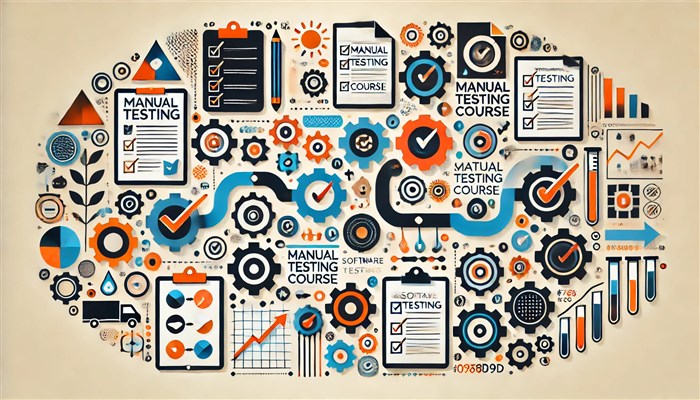Unable to find what you're searching for?
We're here to help you find it
In today’s technology-driven world, software quality assurance (QA) plays a vital role in delivering high-quality products to users. Manual testing, despite the rise of automation, remains an essential skill for QA professionals. For beginners looking to enter this field, enrolling in a comprehensive manual testing course can provide the foundational knowledge and skills necessary for a successful career. In this blog, we will explore some of the top manual testing courses available, their content, and how they can help you jumpstart your QA career.
Before delving into specific courses, it’s crucial to understand why manual testing is still relevant. While automation testing offers speed and efficiency, manual testing provides the human intuition and critical thinking necessary for identifying nuanced issues that automated scripts might miss. It is especially important in scenarios where user experience is paramount, such as usability testing and exploratory testing.
Manual testing courses typically cover a range of essential skills, including:
Overview: The International Software Testing Qualifications Board (ISTQB) offers a globally recognized certification that covers fundamental concepts in software testing, including manual testing.
Course Content:
Why It’s Great for Beginners: This certification provides a solid foundation and is recognized worldwide, making it a great starting point for anyone entering the QA field.
Duration: Typically 20-30 hours of study, often supplemented by online courses.
Overview: This course offers comprehensive training on manual testing, tailored for beginners who wish to grasp the fundamentals and practical applications.
Course Content:
Why It’s Great for Beginners: With a hands-on approach and numerous practical examples, this course helps students understand real-world scenarios in manual testing.
Duration: Approximately 10 hours of video content, with lifetime access.
Overview: This masterclass is designed for those who want an in-depth understanding of manual testing, along with exposure to automation concepts.
Course Content:
Why It’s Great for Beginners: The course provides a comprehensive curriculum that spans both manual and introductory automation testing, giving a well-rounded perspective.
Duration: Over 30 hours of content with practical exercises.
Overview: LinkedIn Learning offers a course focused on manual testing methodologies, aimed at those new to the QA field.
Course Content:
Why It’s Great for Beginners: The course is structured to build confidence in manual testing skills and is suitable for those looking to start a career in QA.
Duration: Approximately 3 hours, ideal for those with limited time.
Overview: Offered by the University of Minnesota, this course covers foundational concepts in software testing, including manual testing techniques.
Course Content:
Why It’s Great for Beginners: This course combines theory with hands-on projects, allowing learners to apply their knowledge in a structured environment.
Duration: Around 12-20 hours, depending on the pace of learning.
When selecting a manual testing course, consider the following factors:
Completing a manual testing course offers several advantages:
Koenig Solutions, a leading IT training company, offers a comprehensive manual testing certification training course designed to equip you with the necessary skills and expertise to excel in your QA career. The course covers all aspects of manual testing and prepares you for the certification exam.
To conclude, manual testing plays a crucial role in ensuring the quality of software products. Acquiring a manual QA tester course can pave the way for a successful career in the software testing domain. Start your journey with Koenig Solutions today and make a significant difference in your professional life.
Conclusion
As the demand for quality assurance professionals continues to rise, enrolling in a manual testing course can be a significant step toward launching your career in QA. With numerous options available, from globally recognized certifications like ISTQB to hands-on courses on platforms like Udemy and Coursera, aspiring testers have ample resources at their disposal. By choosing the right course that aligns with your learning style and career goals, you can equip yourself with the skills and knowledge needed to thrive in the dynamic field of software testing. Embrace the opportunity to learn and grow, and you’ll be well on your way to a successful career in quality assurance.

Aarav Goel has top education industry knowledge with 4 years of experience. Being a passionate blogger also does blogging on the technology niche.










